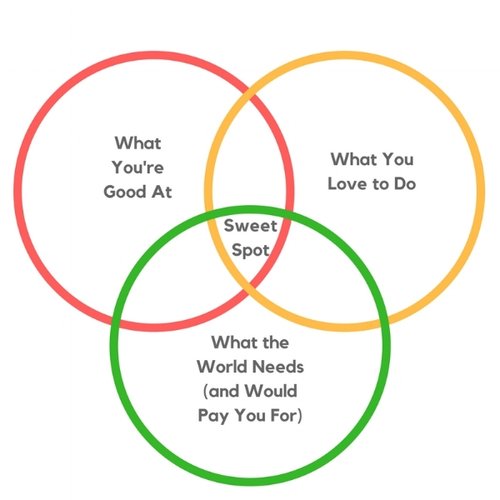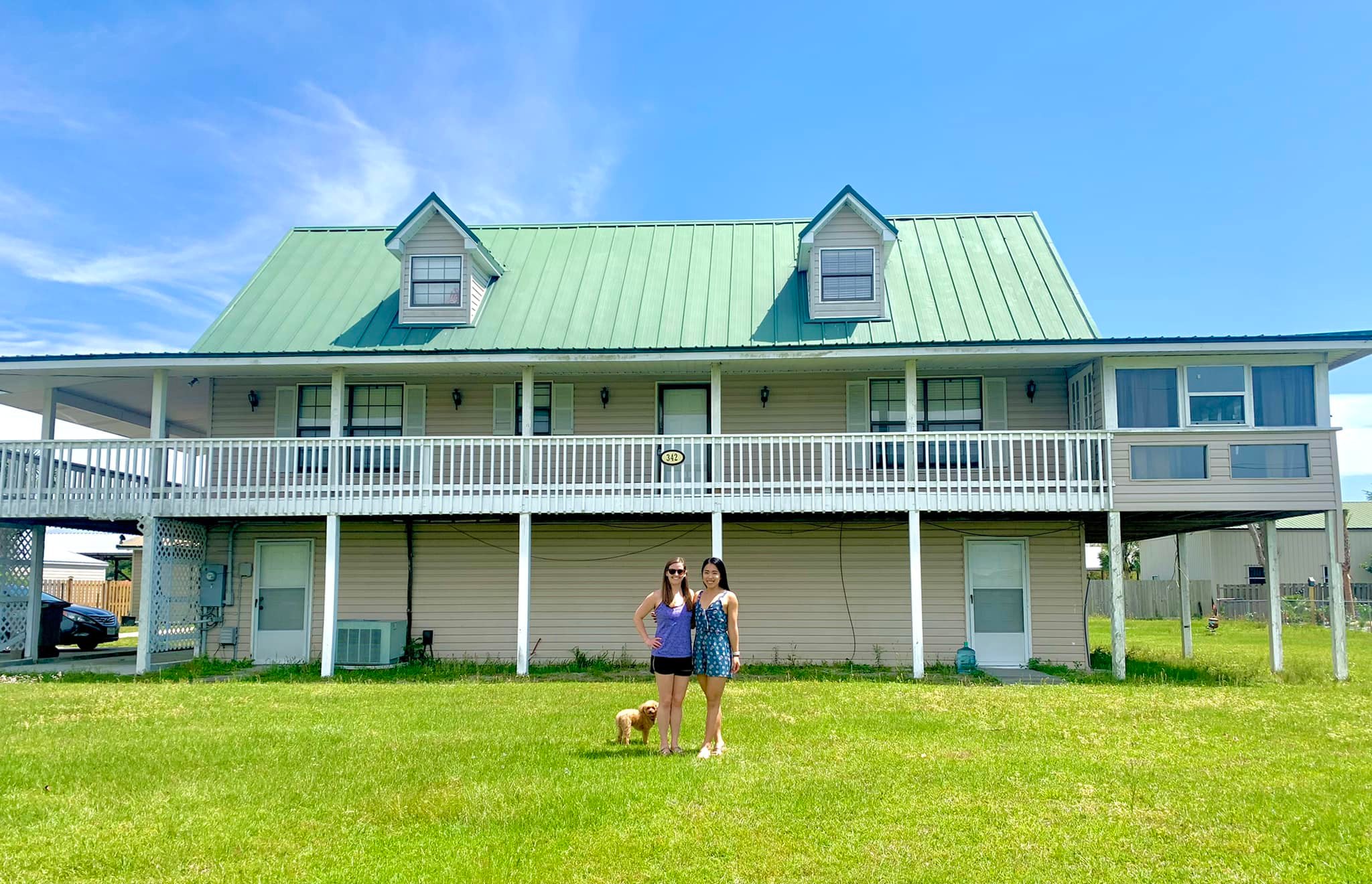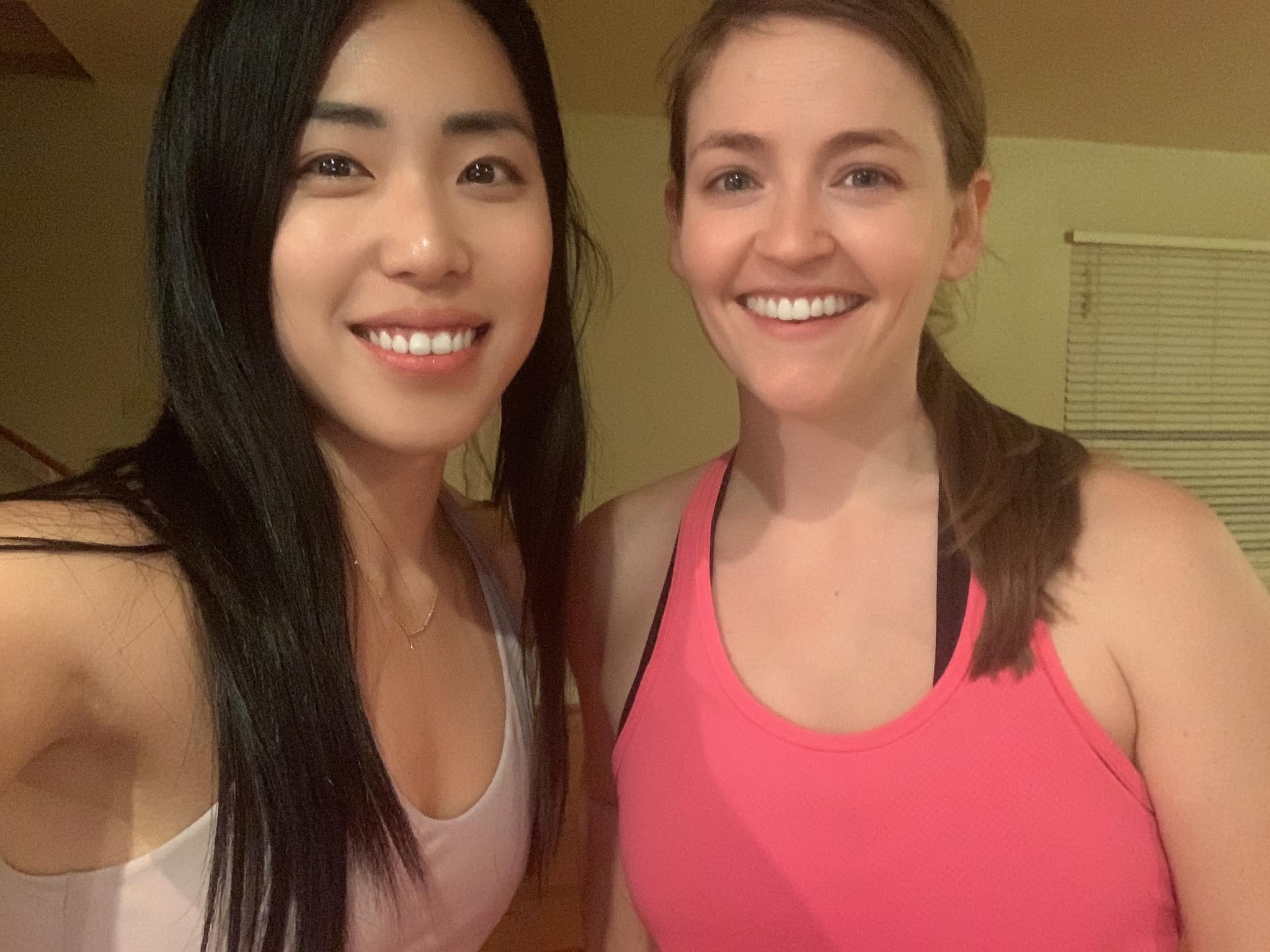RE partnership could last longer than marriage (and how to make it work)

I love brainstorming, ideation, negotiation, partnership, structuring deals, and leveraging technology.
I hate (or let’s be real, am not good at) day-to-day operations and hospitality/dealing with guests.
If you ask yourself deep down, you already know this:
- What are you horrible at or sucks the energy out of you?
- Conversely, what energizes you?
I think partnerships protect and preserve your energy because you're working on tasks that are in your "zone". When you're doing things that you enjoy (or energetically aligned), you can do more of that with ease.
You know what people say about life, "it's a marathon, not a sprint."
(or my personal favorite, "it ain't over until it's over").
Our earlier life journey mainly consists of finding this sweet spot of:
a) What You're Good at, b) What You Love Doing, and c) What the world needs/will pay you for.

Partnership is like finding someone who can share this Van Diagram with.
Maybe you love designing. But you're not good at (or despises) constructions. The World will pay for a beautiful designed and renovated AirBnb. You find the person who's good at construction and voila, you've "cheat coded" into success.

Shayla and I on Day 1 at our beach house we bought sight unseen
Why should you partner?
- You can start today instead of waiting for all signs to line up.
- Complementary skillsets and preferences: I don’t think there’s enough emphasis on complementary preferences in partnerships. I believe it’s important to find someone whose interest inherently lies in something you don’t like. For example, if you don’t like running numbers, leveraging technology, or talking to banks, you should find someone who likes that (me 🙋🏻♀️).
- You don’t know what you don’t know. And this blindspot can cost you thousands of dollars in mistakes. What if you could partner with someone that knows what you don’t know so you don’t make that costly mistake?
- Mitigate risks. I knew that development was a high-risk, high-reward strategy and I didn’t want to put all my money and assets toward one asset class. Having a partner meant I was sharing the upside as well as the downside of mitigating the risks.
- Reduce workload. I realized early on that I can’t do everything by myself. Also, it’s not fun to work on your own. Partnership could be a great source of accountability as well as sharing workload.

Shayla and I on Day 10 of live-in renovation and we're still smiling
So how can you make partnerships work?
This is my personal view point and you might find things different with different people but here's what worked for me.
1. "Date" many people
Just like dating romantically, you have to date many people in order to know who your "person" is. I think a lot of people end up partnering with their friends or family because it's easy to find. But
2. You've got to have the hard conversations
Approach with the serious mindset that partnerships deserve.
I have a list of partnership questions that I always run it through with my potential partners.
I'll make it downloadable on my website for free!
3. Communicate proactively
I used to be not great at proactive communication because I viewed it as a "confrontation" and I'd rather avoid the drama and fight if I can.
But I realized that if I bottle things up inside when certain things that my partner(s) do that bother me, then they won't know that I'm feeling that way because they're not a mindreader.
4. Know each other's strengths and weaknesses
Knowing what the other person is good at that I'm not good at (and vice versa) removed a lot of point of contention for me and my partners.
I think a lot of frustrations come from doing things that I don't like doing/I'm not good at. When we only focused on things that we're good at (say me at updating monthly accounting sheet or DIY projects around rental and my partner at communicating with guests), we were a lot more in "flow" and felt a lot more appreciative of the other person.
5. Think about the polarity in relationship dynamic
I do believe that business partnerships also need polarity just like in a romantic relationships. Therefore, I do think there should be at least the person who's a visionary and the other person the integrator. Someone who will lead and set out the vision, scope of work, and removing blockers while the other person is the implementer of the vision, clarify scope of work, and engage more in day-to-day operation.
Usually the visionary is big thinker but not as good as keeping track of small detail oriented things and the integrator is more detail oriented and nothing falls through the crack with them.
We're also having our in-person event at our brand new Build-to-Rent (BTR) property in East Austin on May 31st, 2023 about this topic and how partnerships can help you scale in real estate investing. So come check out and meet other like-minded real estate investors!
https://www.eventbrite.com/e/how-partnerships-can-help-you-s...

